
English Intermediate I U6Will, going to, simple present and present
Present continuous 1. Matching_MTYyNzM= Present continuous 2. GapFillTyping_MTYyNzQ= future plans or arrangements: Mary is going to a new school next term. What are you doing next week? Present continuous 3 Plans for next month. 2nd (Sat.) - my birthday. Party! 4th - day off 10th (Sun.) - flight OS462 15.40 11th, 12th, 13th - conference.

Will, to be going to or present continuous? Brainly.lat
Talking about the future. In English, we can use will, be going to, the present simple or present continuous tenses, phrases like about to, and verbs like aim and plan - all to talk about the.
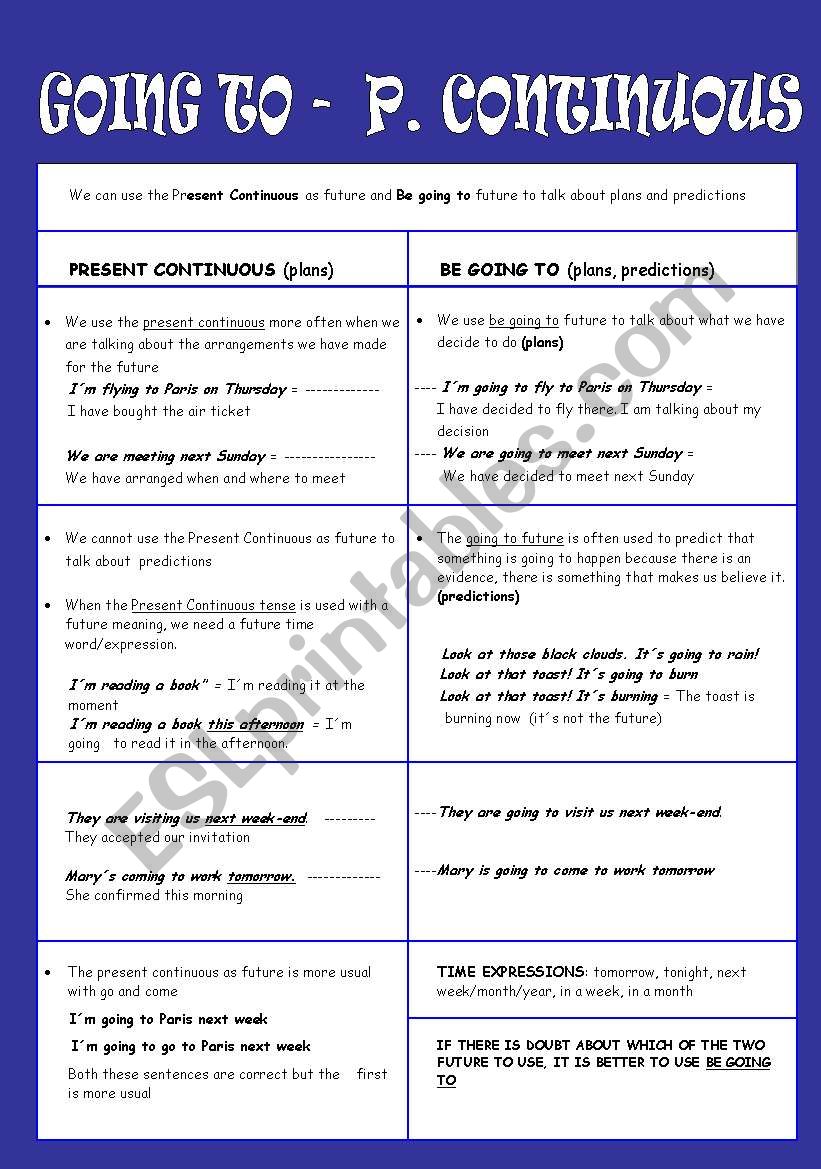
Will Going To Present Continuous Exercises
How can you use "GOING TO" for the future? What about the PRESENT CONTINUOUS TENSE? In this English grammar class, I'll explain when and how to use these two.

Future plans will, going to and present continuous NO. 1 INSTITUTE
When we use the present continuous for arrangements, we must always include when (at 7, this evening, next month, etc.) in the sentence. I' m seeing the dentist at 6. We are getting married next week. I' m flying to New York tomorrow morning. We can also use be going to for future arrangements. I' m going to play tennis with Elisabeth today.

Mixed Verbal Tense Present Simple, Present Continuous, Past Simple C2A
Learn future tenses in English conversation! There are different ways to use future tense. in this video, we show you how to speak about the future with four.

Present Continuous vs. Going To LanGeek
Will, Be Going To vs. Present Continuous. We can use three verb forms to talk about the future: will, going to + infinitive and the present continuous tense. Will + infinitive. The simple future tense (will + first form of the verb) has several functions. For example, it can be used to make a prediction about the future.

English Intermediate I U6Will, going to, simple present and present
Transcript. We have different ways of talking about the future. We often use going to (+ infinitive), the present continuous (to be + -ing) or will (+ infinitive). The structure we use depends on the function of what we want to say, whether we are talking about arrangements, plans, predictions, etc.. I thought will was the future tense in English.
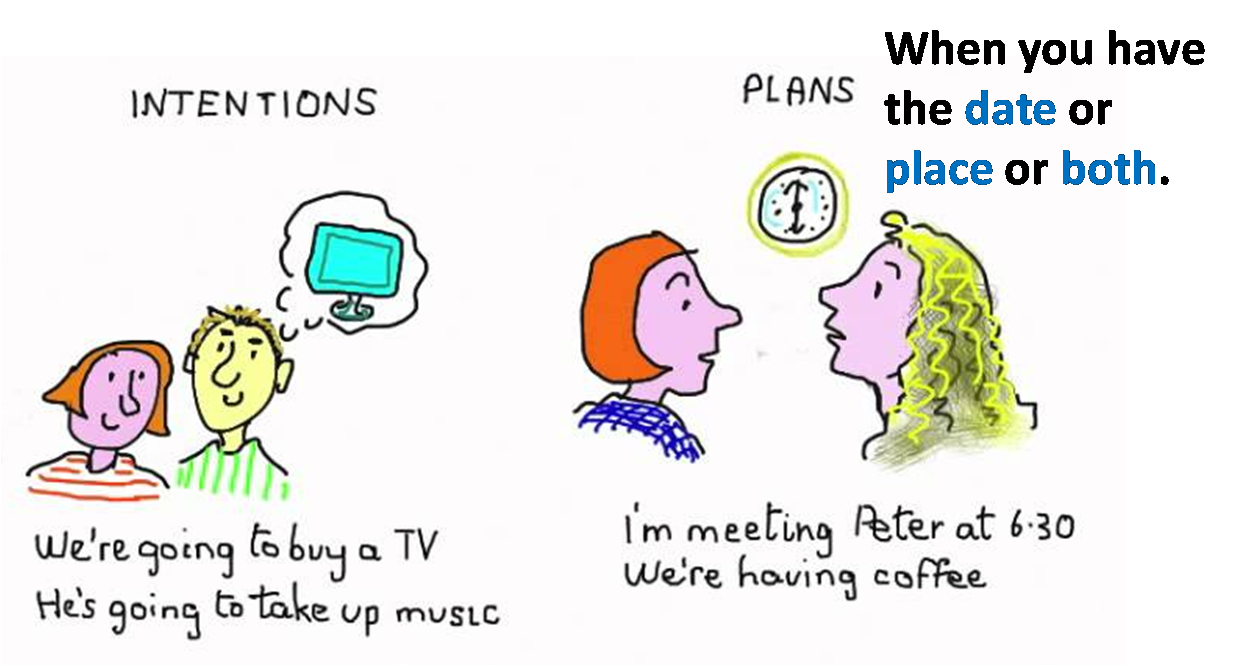
BASIC ENGLISH II U4 Going to Vs. Present continuous
Revision ESL printable worksheet on future forms WILL, BE GOING TO and Present Continuous. Solutions are included at the end of the handout. Besides the grammar drills the printable contains a speaking task for pairs: student A is the fortuneteller, who is going to tell the future for his or her client (student B).
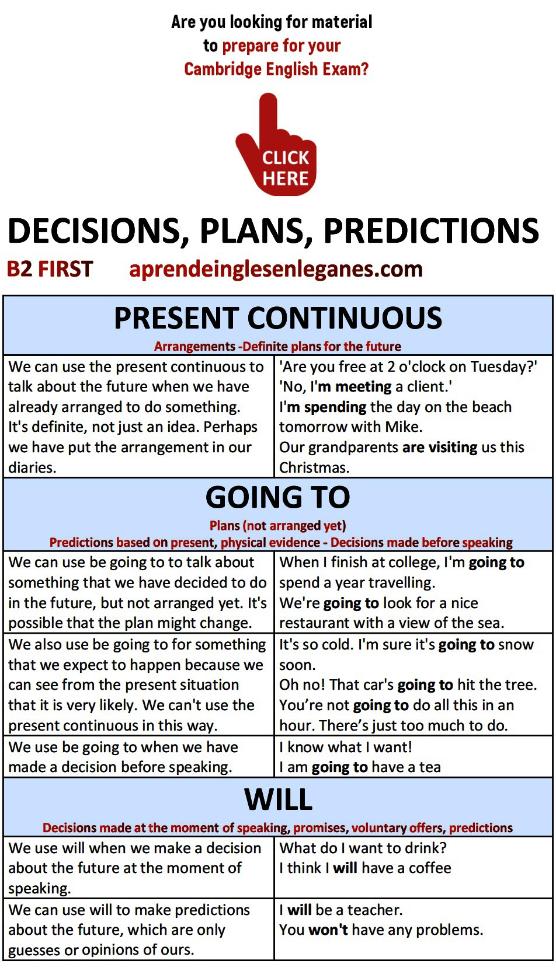
bağlantı kesildi gururluyum eğlence present continuous vs be going to
When we use the present continuous for arrangements, we must always include when ( at 7, this evening, next month, etc.) in the sentence. I'm seeing the dentist at 6. We are getting married next week. I'm flying to New York tomorrow morning. We can also use be going to for future arrangements. I'm going to play tennis with Elisabeth today.
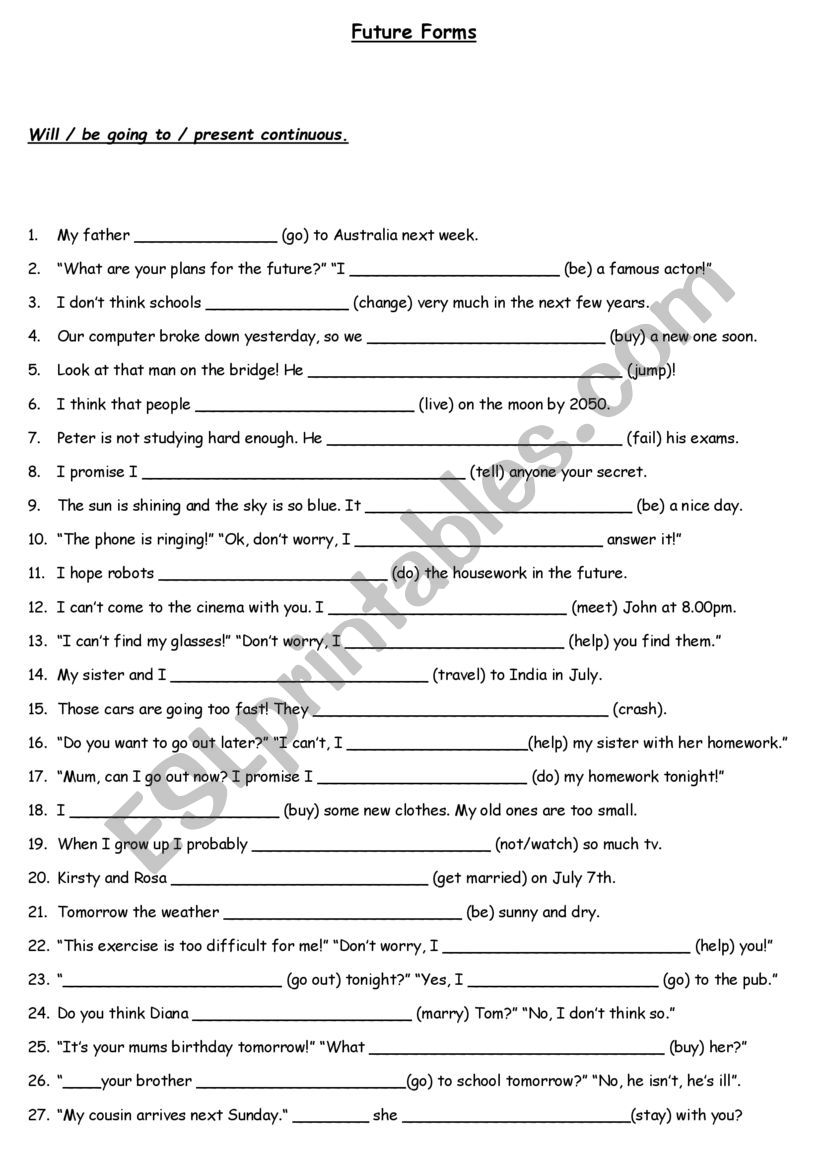
Future will, going to, present continuous ESL worksheet by teachkirst
Other points about the future: We use the present continuous tense for definite future arrangements. Often, it doesn't really matter if we choose 'be going to' or the present continuous. In the following example, there is really very little difference in meaning: I'm going to the cinema tonight. I'm going to go to the cinema tonight.

Will Be Going To Present Continuous Liveworksheets
Look at these examples to see how will, going to and the present continuous are used. Oh great! That meeting after work's been cancelled. I'll go to that yoga class instead. I'm going to try to visit my relatives in Australia this year. The restaurant is reserved for 8. We're having a drink at Beale's first. Try this exercise to test your grammar.
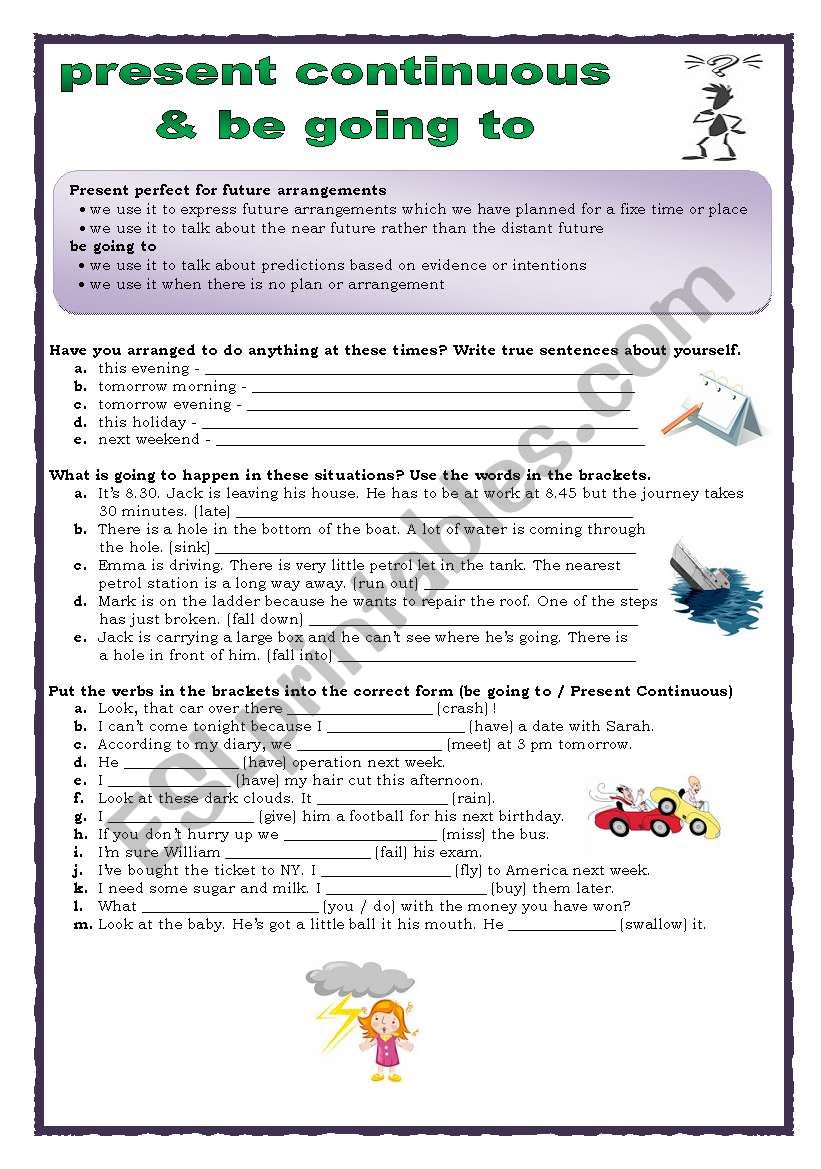
Will Going To Present Continuous Exercises
Let's compare these three sentences. I'm meeting my friend for coffee. present continuous. I'm going to tell her about my new job. going to. I'll take my dog to the beach. will. So, present continuous, going to and will are all used to talk about future plans BUT they have a slightly different meaning. Present continuous - is used.
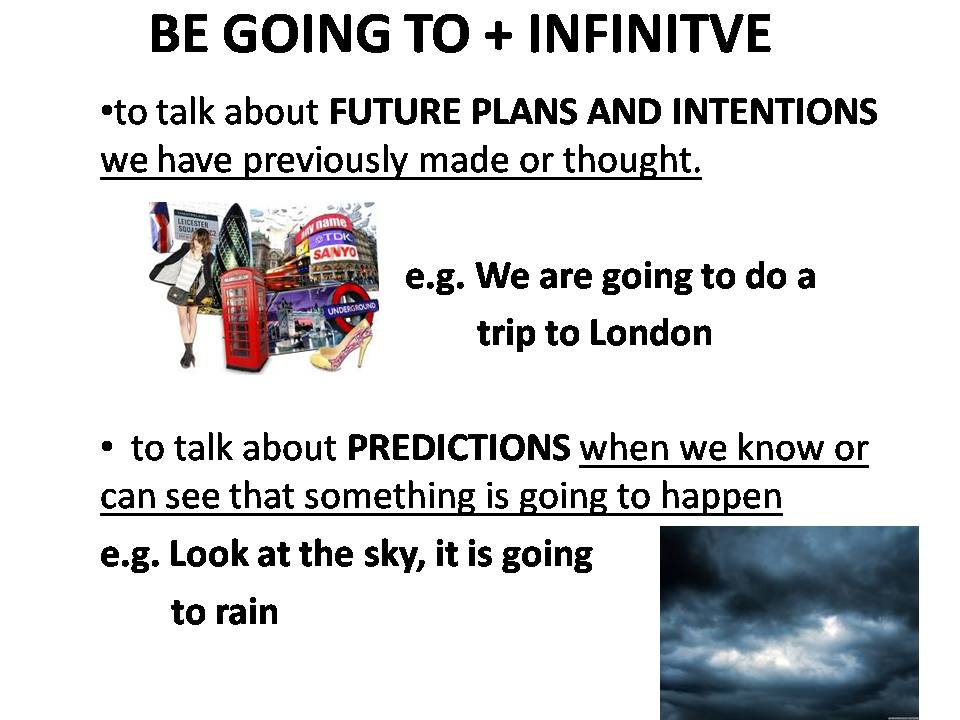
Future forms «Be going to» and present continuous Road to English A2
Explanation: "Going to" is used for a planned future action or intention. Answer: will. Explanation: "Will" is used to make a spontaneous decision at the moment of speaking. Answer: is going to. Explanation: "Going to" is used to express a future intention or plan that is likely to happen. Answer: are going to.
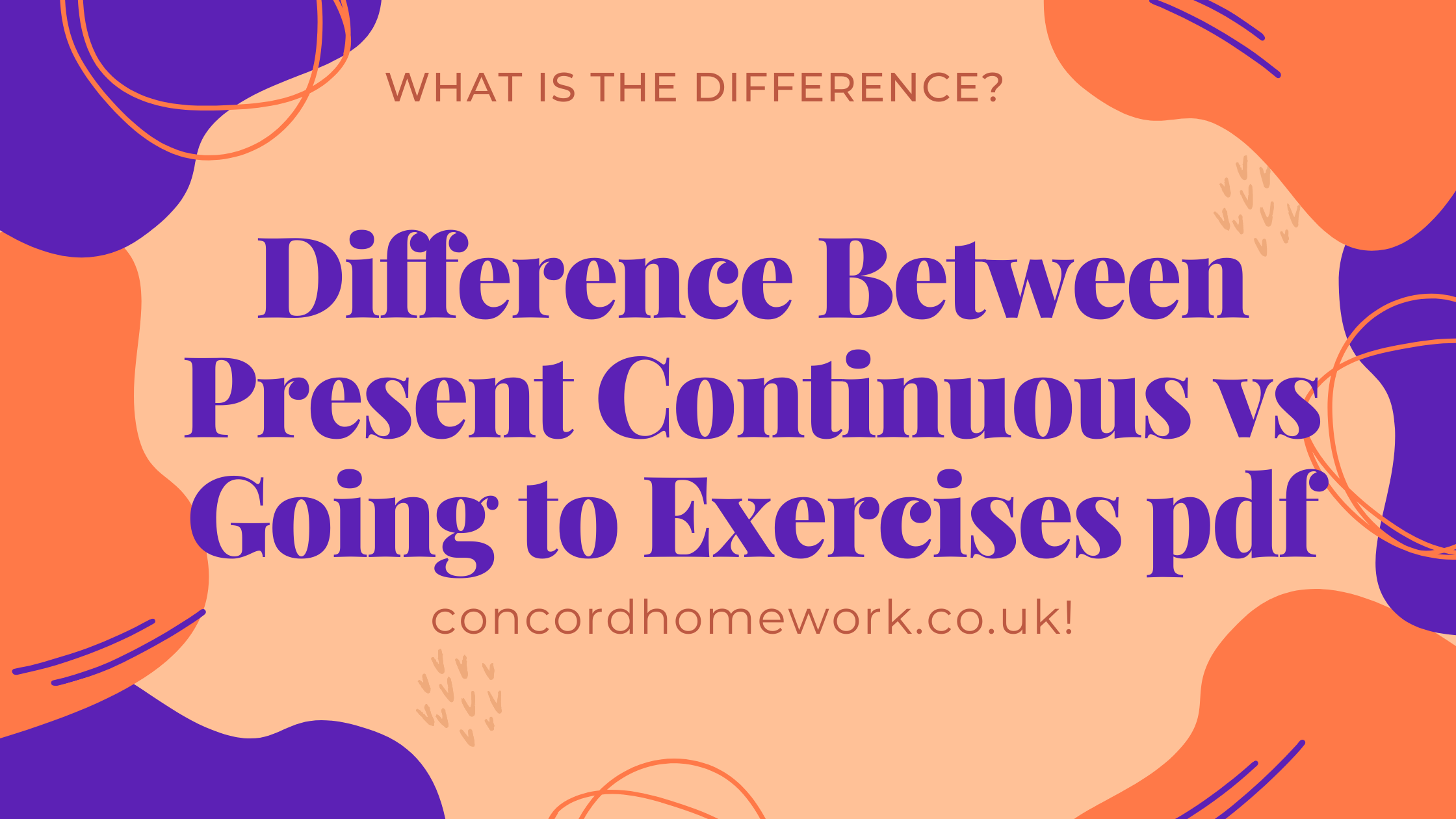
Difference Between Present Continuous vs Going to Exercises pdf
Future: present continuous to talk about the future ( I'm working tomorrow ) - English Grammar Today - a reference to written and spoken English grammar and usage - Cambridge Dictionary
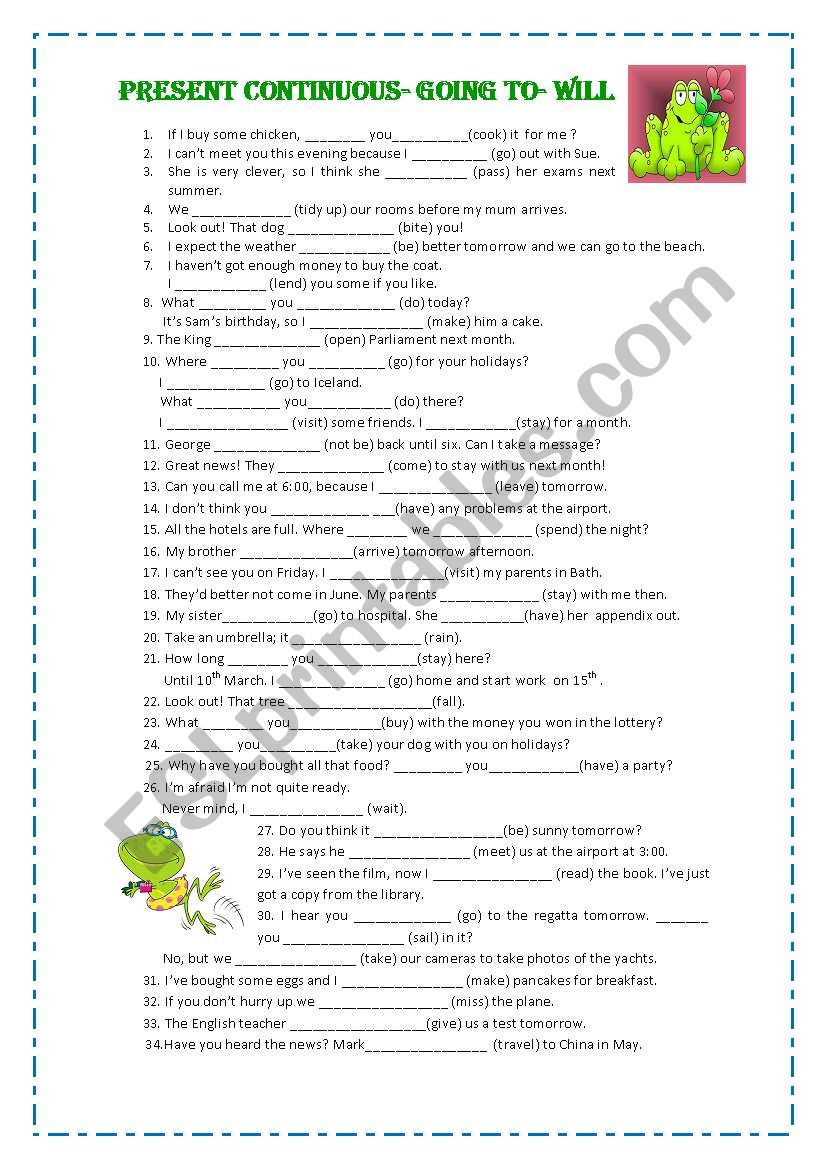
Will Going To Present Continuous Exercises
Going to - English Grammar Today - a reference to written and spoken English grammar and usage - Cambridge Dictionary
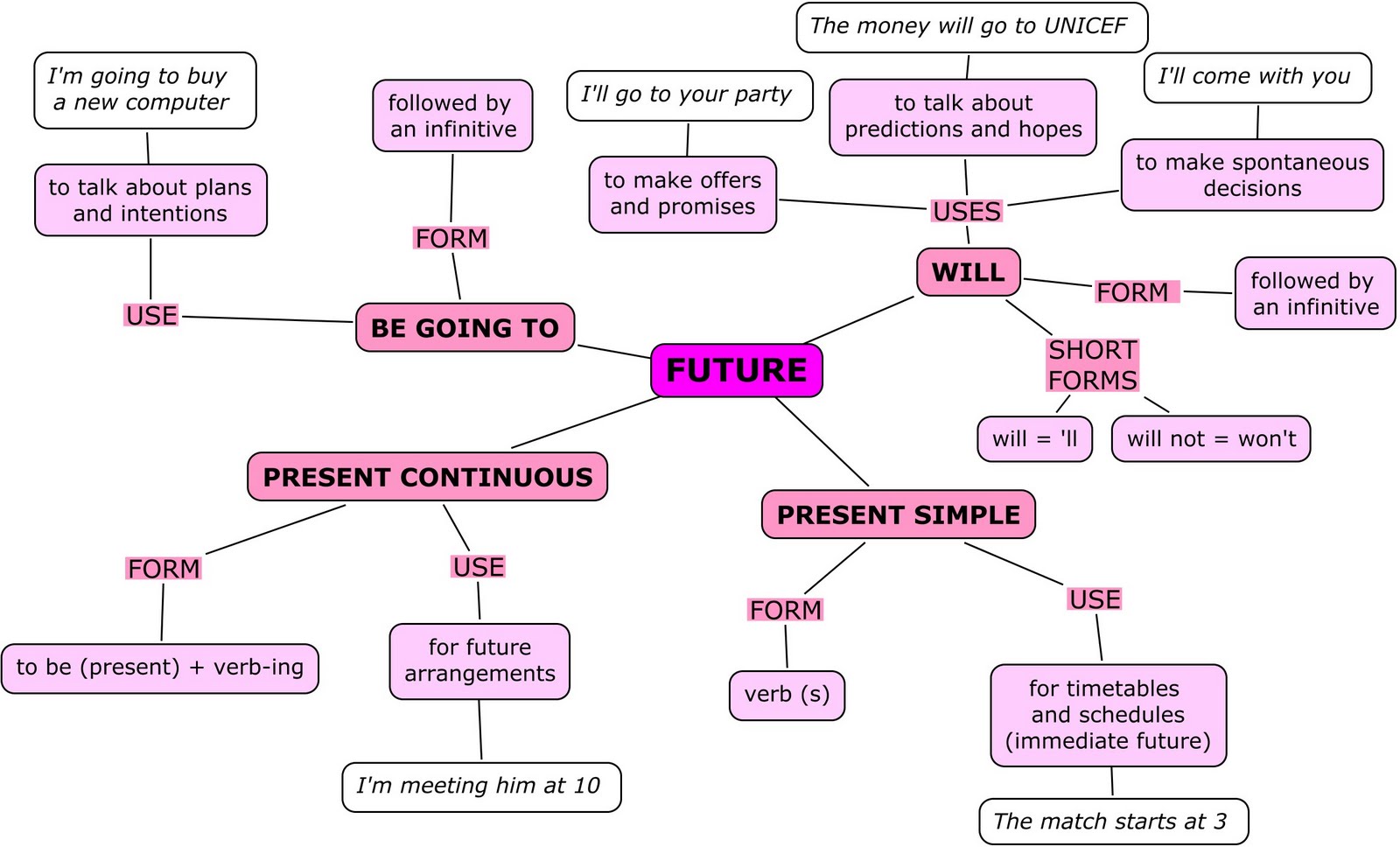
Soraya Moreno's Blog FUTURE FORMS GOING TO, PRESENT CONTINUOUS, WILL
There are two future forms used in most conversations: the future with "will" and the future with "going to." The main difference between the two forms is that "going to" is used for plans and intentions made before the moment of speaking, and the "will" to speak about the future at the moment of speaking. Study these basic forms and then use.